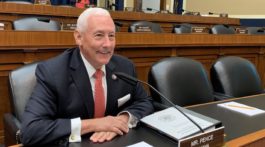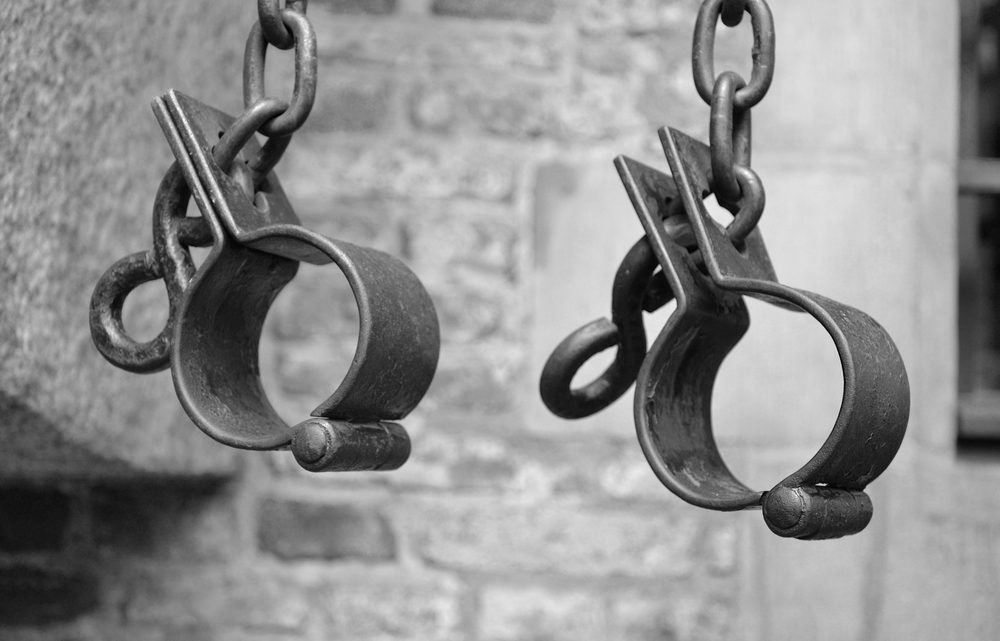by Abdul-Hakim Shabazz
There’s been a lot of talk lately about reparations. For those of you who aren’t quite sure what I’m talking about, reparations is simply the term for addressing the effects of slavery and segregation laws by providing some kind of restitution to the descendants of slaves.
Congress has been holding hearings on the matter and just about every Democratic candidate for President is tripping over themselves to not get on the wrong side of the “reparations now, reparations forever” crowd.
Now some of you might think that simply because I’m African-American, I support reparations. Well, just like thinking that because I’m African-American I have rhythm and a great jump shot, that would not be the case. I oppose them philosophically and as a practical matter.
Let’s start with the philosophic argument.
I have a problem trying to hold someone accountable for something they either didn’t do or had nothing to do with. In a court of law we have burdens of proof we have to reach in order to hold individuals accountable for their actions, and I can’t hold my best friend of more than 30 years, who is a white guy by the way, responsible for slavery by either a reasonable doubt or a preponderance of the evidence. He had nothing to do with it. Nor is he reaping the benefits of slavery, since I bought the scotch and cigars the last time we met. And now that I think about it, his family didn’t come to America until the early 1900s, nearly 40 years after slavery ended.
Which brings me to my practical argument against reparations, how do you do it?
I assume the first order of business would be to figure out who gets what. And there’s the first reason why this doesn’t work. Logic would dictate that to qualify for reparations, you would have to prove you’re a descendant of a slave. Notice I didn’t say black or African-American, but a descendant of a slave. And one way to start is by using a DNA kit, and if you can show one-percent of African heritage, then that gets you over the first hump. I say one-percent based on the old “one drop” rule, it was a rule that said if you had one drop of “black blood” in you, you were considered black. Well, if you have one-percent African DNA, that’s good enough for me, welcome to Wakanda!
So now that we’ve determined who’s entitled to reparations, now we need to figure out how much to give. Depending on who you talk to, that number can be anywhere from an average of $1.5 million per slave descendant to $17.1 trillion total. But then we have to figure out who gets what specifically? For example, do descendants of slaves who worked in the house get more or less than the ones who worked in the fields? Do slaves who gained their freedom, by a variety of means, get less than those who stayed in bondage until the end of the Civil War? And should you be entitled to more compensation, the more “slave” you have in your DNA, so 70 percent gets more than one percent? The list goes on.
And while we’re on the subject, what should those reparations look like? Is it a “fund” overseen by a government bureaucrat? Do we get checks? I personally prefer direct deposit or an ACH payment myself. Do we get a break on taxes? Free school? The possibilities are endless.
And that’s why this doesn’t work. Holding people accountable for something they had no control over to pay for something that would be a disaster to administer? How does this make sense to any rational thinking person?
Now reparations advocates will say that if Holocaust survivors, Japanese citizens who were held in internment camps and Native Americans can get reparations for injustices done to them, why can’t African-Americans for slavery? That is a fair question that deserves an honest answer. Logistics. In each of those instances, you can identify the aggrieved individuals. Also, reparations were done, depending on how you like to measure time, shortly after the injustices were done. It’s 2019, the time for reparations was the late 1800’s, or at least when Sylvester Magee died, he was the last known living slave who died in 1971.
There are plenty of ailments that negatively impact some segments of the black community, but this talk of reparations as a possible cure is simply a placebo.
Abdul-Hakim Shabazz is an attorney and the editor and publisher of IndyPolitics.Org. His opinions are his own, but you are free to adopt them.











